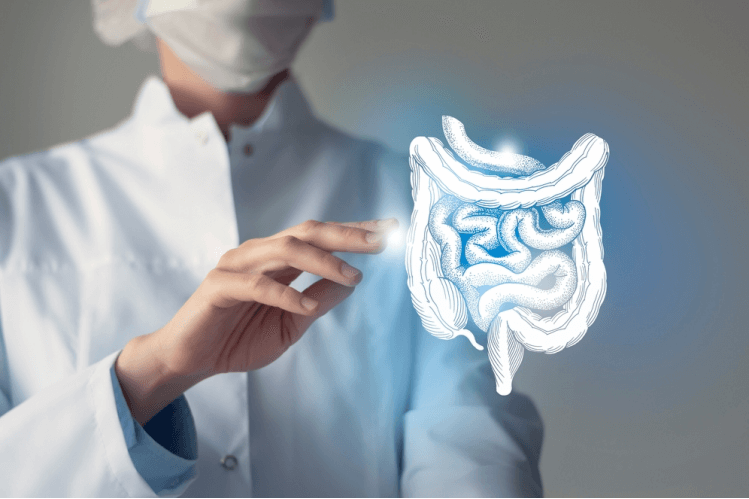We’re excited to announce that our new office is almost ready!
Starting June 5th, our permanent Londonderry location will be open at 50 Michels Way, suite 204. The new office is easy to find and conveniently located just after the Home Goods and Market Basket plaza. The GSG office is on the second floor (take a right off of the elevator).
We appreciate everyone’s patience while we were recuperating after the fire at our Derry office. We will continue to see patients at the temporary Londonderry location at 18 Orchard View Drive through June 2nd.
What is IBS?

Also known as IBS, irritable bowel syndrome is a common chronic disorder affecting the GI tract. Symptoms include abdominal pain, cramping, gas, bloating, and constipation or diarrhea. While it doesn’t lead to an increased risk of colorectal cancer or other changes in the bowel tissue, it can impact a person’s quality of life. Luckily, most people are able to manage their symptoms by adopting a healthy diet and lifestyle changes.
The Top Tips and Tricks for Reducing the Likelihood of IBS
- Cook homemade meals using fresh ingredients including vegetables and whole grains
- Avoid processed or fatty foods
- Get plenty of exercise
- Try to limit your stress levels
- Do not skip meals and try to eat slowly
- Limit the amount of alcohol and soft drinks that you consume
- Take probiotic supplements or eat probiotic-rich foods
It is also important to keep a food diary of things that you have eaten that have triggered your IBS. You may find that foods like cabbage, broccoli, beans, and cauliflower are difficult for your body to digest and are best to be avoided. Keeping a food diary can help you figure out what foods are causing your symptoms so that you can avoid eating them in the future.
What is Diverticular Disease?

Diverticular disease consists of two conditions (diverticulosis and diverticulitis) that occur in the large intestine that arise from problems associated with diverticula, one or more bulges that form in the wall of the colon. These bulges are caused by an increase in pressure inside the colon that causes pockets to form in weakened areas of the colon’s walls. They can range from anywhere between 1/10 inch to roughly half an inch.
While diverticula are rare in young people, they occur in around 10% of people over the age of 40 and 50% of people above the age of 60. The likelihood of developing diverticulosis increases with age and nearly everyone over the age of 80 has them. People are at increased risk if they are above 40 years of age, overweight, don’t exercise, smoke cigarettes, and eat a diet low in fiber but high in fat and red meat.
What are diverticulosis and diverticulitis?
Diverticulosis simply describes the presence of diverticula in the colon. While this condition usually has no symptoms, it can eventually lead to diverticulitis which is a much more serious condition. Diverticulitis is the swelling and infection of the diverticula and it can lead to pain in the left lower side of the abdomen, fever, chills, nausea, constipation, cramps, or rectal bleeding. Researchers believe that it is caused by the bacteria in the stool getting pushed into the diverticula.
How is diverticulitis diagnosed and treated?
Diverticulitis is diagnosed by blood tests, stool samples, a digital rectal exam, a CT scan, or by colonoscopy. It can be treated with antibiotics and over-the-counter pain medications as well as eating a liquid diet while symptoms improve. Surgery may be considered if there is the presence of an abscess, a tear in the colon, fistulas, blockages, or continuous rectal bleeding. This could include removing part of the colon and reattaching it to the rectum or by creating a stoma where the healthy end of the colon is brought to the surface of the abdomen wall.
Need help?
If you suspect that you may be experiencing diverticulitis, give us a call to set up an appointment with one of our GI specialists today.
Office Updates

We are happy to share that our new building at 50 Michels Way in Londonderry is nearing completion and we’ll begin seeing patients there on June 5th.
Just a reminder, GSG is no longer at the Derry location.
We have opened our temporary clinic right next door to the WorkOut Club in Londonderry for convenient care to our local area patients.
The address is 18 Orchard View Drive, Londonderry, NH. We are adjacent to the Shaw’s Plaza just after the AMC Movie Theater.
Please feel free to reach out with any questions.

